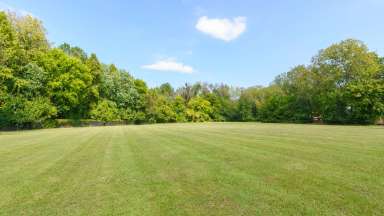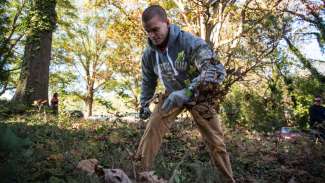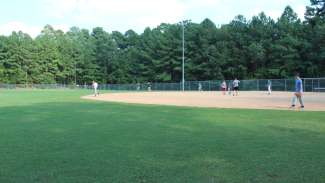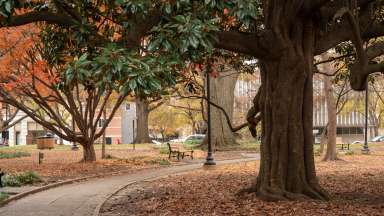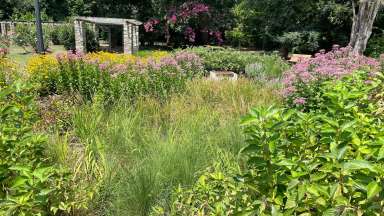Jump To:
Why Do We Use Pesticides?
First, it’s important to understand what we mean by pesticide. The word “Pesticide” is a general term for a product that controls any possible pest, including insects, weeds, fungus, mites, etc. When pesticides are used for a specific purpose they get a different name, so for example, insecticides control insects, and herbicides are used to control weeds.
Our main concern in parks is to control weeds, therefore we mostly use herbicides. With very few exceptions, such as the treatment of fire ants and yellow jackets, we don’t use any insecticides at all.
Other tools in our integrated pest management toolbox include hand-pulling weeds, and prevention like proper mulching, plant selection, and minimizing soil disturbance.
How Do We Use Pesticides in Parks?
If you think of an athletic field, it is very important to have a safe playable surface that has consistent coverage and is weed free. Unfortunately, with the high demands of athletic play, it is difficult to achieve this without the use of pesticides. But it should be noted, that pesticides alone are not the only solution.
We implement a sophisticated IPM program to achieve our goals, that includes proper fertilization, watering, aeration, scheduling play, and preventing play during wet weather. So, if you see a notice not to use an athletic field because of wet conditions, then please respect it. We are trying to reduce the amounts of chemicals we need to properly maintain the athletic field by managing the impact on the field.
How Do We Protect the Environment and People?
The goals of our Integrated Pest Management program are to minimize pesticide use, use the safest and most effective product available, and to create exceptional park and greenway experiences. Our priorities are to protect:
- the environment,
- the public,
- and our employees.
Our Integrated Pest Management Program has three core components: training, administration, and field operations. First, our pesticide applicators undergo strict training on the proper methods of application. These trainings build the skill set to properly apply pesticides in the most effective way, that are safest for the environment, the public, and the employee. All our applicators are Certified by the NC Department of Agriculture as Licensed Public Operators, they undergo 8 hours of in-house training, and are certified in hazardous waste spill response by OSHA. Second, all our operations are governed by the Pesticide Core Team. This inter-departmental team develops and enforces our Pesticide Management Policy that governs how pesticides are used on all Park-controlled properties.
And finally, our field operations are designed to be safe to the environment, the public and our employees. Our personal protective equipment is strictly regulated, all our application equipment is inspected annually, any pesticides applied are recorded, and any application is posted to warn the public of our operations. If you see a Pesticide Application sign, please follow the instructions, and stay out of the area. We don’t want you, your children, or your pets to be exposed to pesticides while you are enjoying our Parks.
